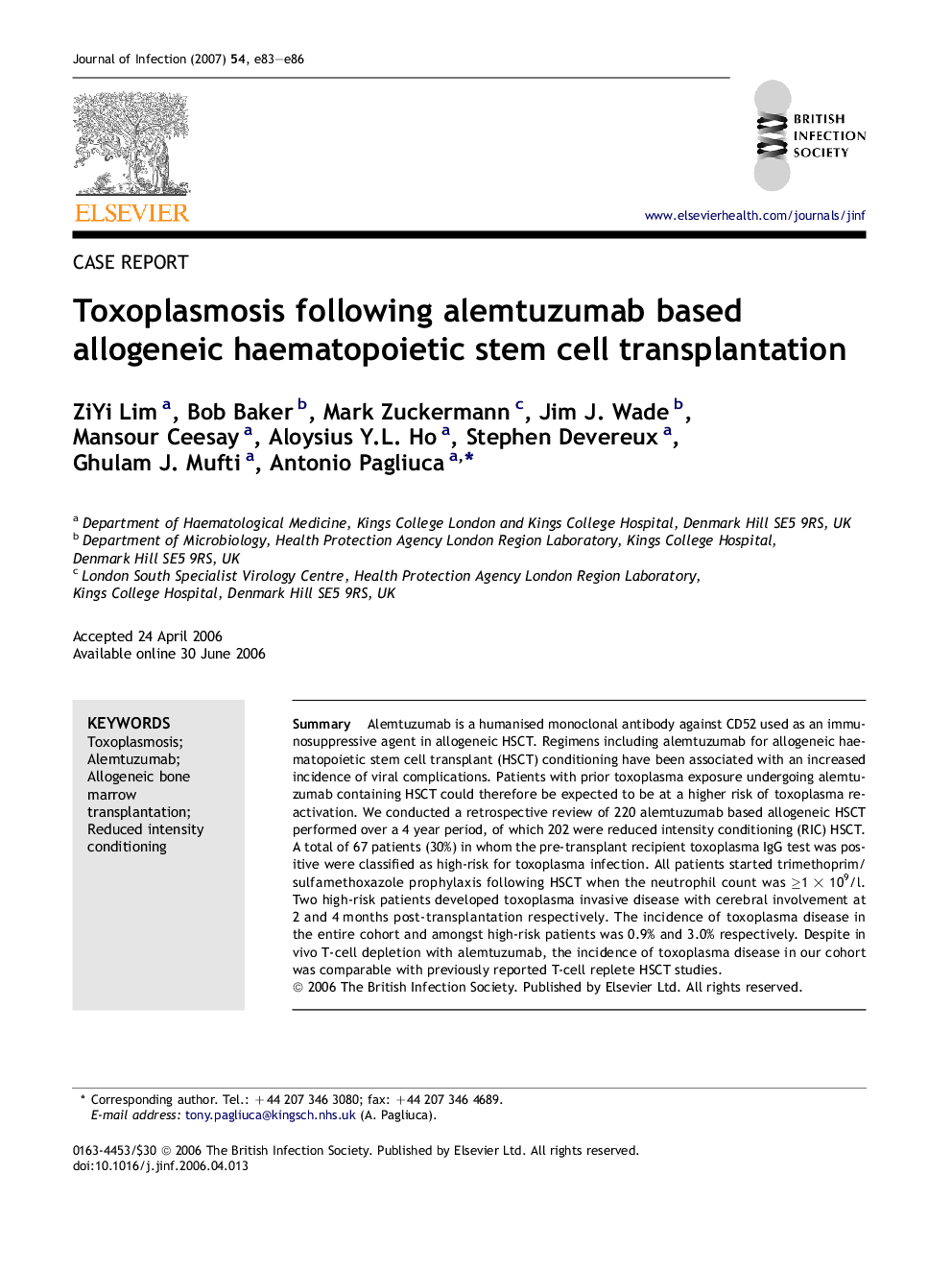| Article ID | Journal | Published Year | Pages | File Type |
|---|---|---|---|---|
| 3376548 | Journal of Infection | 2007 | 4 Pages |
Abstract
Alemtuzumab is a humanised monoclonal antibody against CD52 used as an immunosuppressive agent in allogeneic HSCT. Regimens including alemtuzumab for allogeneic haematopoietic stem cell transplant (HSCT) conditioning have been associated with an increased incidence of viral complications. Patients with prior toxoplasma exposure undergoing alemtuzumab containing HSCT could therefore be expected to be at a higher risk of toxoplasma reactivation. We conducted a retrospective review of 220 alemtuzumab based allogeneic HSCT performed over a 4 year period, of which 202 were reduced intensity conditioning (RIC) HSCT. A total of 67 patients (30%) in whom the pre-transplant recipient toxoplasma IgG test was positive were classified as high-risk for toxoplasma infection. All patients started trimethoprim/sulfamethoxazole prophylaxis following HSCT when the neutrophil count was â¥1 Ã 109/l. Two high-risk patients developed toxoplasma invasive disease with cerebral involvement at 2 and 4 months post-transplantation respectively. The incidence of toxoplasma disease in the entire cohort and amongst high-risk patients was 0.9% and 3.0% respectively. Despite in vivo T-cell depletion with alemtuzumab, the incidence of toxoplasma disease in our cohort was comparable with previously reported T-cell replete HSCT studies.
Keywords
Related Topics
Life Sciences
Immunology and Microbiology
Applied Microbiology and Biotechnology
Authors
ZiYi Lim, Bob Baker, Mark Zuckermann, Jim J. Wade, Mansour Ceesay, Aloysius Y.L. Ho, Stephen Devereux, Ghulam J. Mufti, Antonio Pagliuca,
